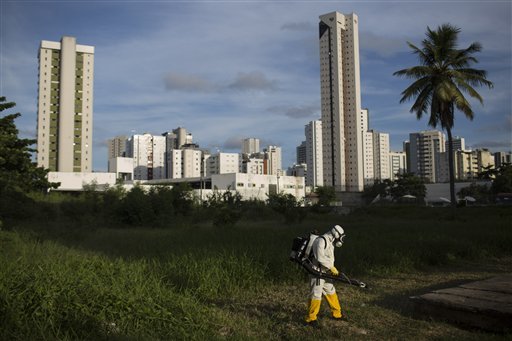-
Tips for becoming a good boxer - November 6, 2020
-
7 expert tips for making your hens night a memorable one - November 6, 2020
-
5 reasons to host your Christmas party on a cruise boat - November 6, 2020
-
What to do when you’re charged with a crime - November 6, 2020
-
Should you get one or multiple dogs? Here’s all you need to know - November 3, 2020
-
A Guide: How to Build Your Very Own Magic Mirror - February 14, 2019
-
Our Top Inspirational Baseball Stars - November 24, 2018
-
Five Tech Tools That Will Help You Turn Your Blog into a Business - November 24, 2018
-
How to Indulge on Vacation without Expanding Your Waist - November 9, 2018
-
5 Strategies for Businesses to Appeal to Today’s Increasingly Mobile-Crazed Customers - November 9, 2018
Scientists Find Active Zika Virus In Urine, Saliva
The CDC said men who have traveled to areas vulnerable to Zika should use a condom during sexual activity – and that pregnant women should insist on a condom or abstain from sex altogether when involved with a person who has traveled to such regions. The CDC previously recommended pregnant women who have traveled to affected areas and displayed symptoms of Zika virus be tested within two weeks.
Advertisement
Couples in which a man resides in or has traveled to an area of active Zika virus transmission who are concerned about sexual transmission of Zika virus may consider using condoms consistently and correctly during sex or abstaining from sexual activity.
Brazilian scientists announced their discovery on Friday, as US health officials advised more stringent measures for monitoring pregnant women for Zika and for preventing sexual transmission of the virus.
Most people with the virus have no symptoms, or experience only mild symptoms like fever, headache and rash.
The CDC said that pregnant women can be tested for the virus for two to 12 weeks after they return from area with an outbreak. “They’re requested the physicians, nurse practitioners and other healthcare providers to test people as soon as they show up with any symptoms”.
Some pregnant women infected with the virus have given birth to babies with microcephaly, a disorder which leads to severe developmental issues and can be fatal.
The World Health Organization said that between January 2014 and February 5, 2016, a total of 33 countries have reported indigenous circulation of Zika virus.
Zika virus primarily is spread by Aedes mosquitoes. As yet, there have been no reported cases of women infecting men through sex.
A mosquito-borne virus that’s been linked to birth defects is raising fears among some travelers to South America.
Health officials tell us that they aren’t sure how this virus was transmitted through sexual contact, but they are working on how to find a solution.
Meera Garcia spent Friday afternoon poring over the CDC’s new Zika virus guidelines. “That is what had to be the priority for protection”, said Tom Frieden, director of CDC. There now is no vaccine or treatment.
Meanwhile, in Geneva, spokeswoman Cecile Pouilly said the U.N. High Commissioner for Human Rights was asking governments in Zika-affected countries in Latin America and the Caribbean to repeal any policies that restrict access to sexual and reproductive health services, including abortion.
Advertisement
Much about the virus, including whether it can be transmitted from person to person, remains unclear.





























